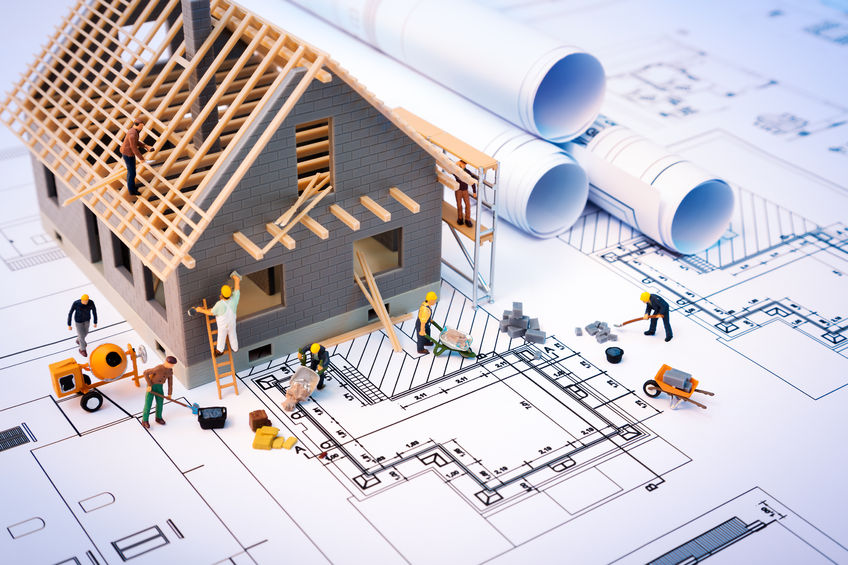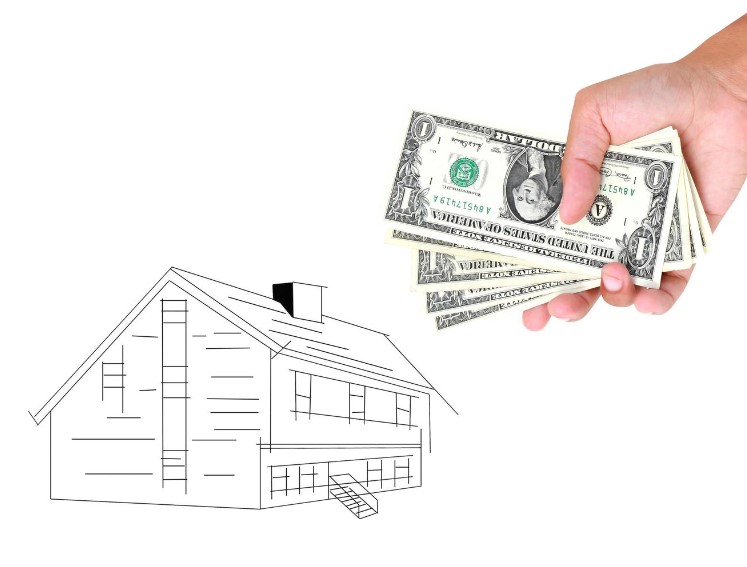When you’re deciding between Buying vs Building a New Home it’s not just about what you like or what fits your budget today. It’s about what will bring you more value and happiness down the road. You ask: In Monmouth and Ocean County, NJ what’s less? Buying or building from scratch? MSC Enterprises knows.
Buying an existing home is generally cheaper upfront than building a new one. But building can offer custom features and potentially more long term value.

When considering an existing home the charm of mature neighborhoods and the convenience of a move in ready home may be attractive. But closing costs, ongoing maintenance and potential renovation costs can add up and impact the cost of this option.
On the other hand building a new construction or custom home gives you the freedom to design your own home to your exact specifications and tastes. While the upfront cost may be higher the investment could pay off in the long run with lower maintenance costs and a home that’s truly tailored to your lifestyle.
Whether you like the character of an existing property or are excited about a new home a knowledgeable real estate agent can be a huge help. Consulting a local real estate agent also gives you access to exclusive listings and off market opportunities which will help your search.
Buying vs Building a New Home Costs
When buying a home the charm of established neighborhoods and move in ready is often attractive.
But you need to consider the hidden costs of this option:
Purchase Price and Closing Costs
The biggest cost is the purchase price, with down payments ranging from 3% to 20%. Closing costs which include fees such as loan origination and appraisal can add 2% to 5% to the loan amount.
Renovations and Updates
Older homes are charming but may need updates to meet your lifestyle. Renovations can be minor cosmetic to major structural and will impact your budget.
Ongoing Maintenance and Repair Costs
Homes need regular maintenance from lawn care to major repairs like roof replacements. Older homes will have higher maintenance costs due to aging systems.
But many buyers like the character and convenience of existing homes, often in communities with history and mature landscapes.

The Charm and Convenience
But many people are attracted to existing homes for their charm, history and convenience. They offer the chance to live in established neighborhoods with mature trees and close knit communities.
You won’t have to wait for construction to be complete like you would if you build a home which is a big plus for many buyers.
Building a New Home Costs
Building a new home can be a exciting option, you get to design your dream home from the ground up. But this option also comes with its own set of costs and considerations. Let’s break down some of the big expenses and aspects of building a new home. One of the biggest is getting a building permit which is the main permit required for construction and can take time to get.
Building a new home gives you the opportunity to create a space that’s tailored to your needs. But this option comes with its own costs and challenges as part of the home building process.
The Home Building Process
Building a new home is an exciting journey but can be complex and overwhelming especially for first time homebuyers. Understanding the different stages involved can help you navigate the process with confidence. Here’s a breakdown of the home building process:
- Planning and Designing: This initial stage involves creating a custom design for your home. You’ll work with architects and designers to draft plans that meet your needs and preferences. Choosing a building site and getting the necessary building permits are also part of this phase.
- Pre-Construction: Before construction starts the building site needs to be prepared. This includes clearing the land, grading and installing essential utilities like water, electricity and sewage systems.
- Foundation Work: The foundation is the base of your home. Depending on your design this could be a slab, basement or crawl space. Proper foundation work is critical to ensure the stability and longevity of your home.
- Framing: Once the foundation is set the framing stage begins. This involves constructing the exterior walls, interior partitions and roof systems. Windows and doors are installed during this phase giving shape to your new home.
- Roof Systems Installation: The roof is a big part of your home’s structure. Installing the roof systems including the house wrap helps protect your home from moisture and weather elements.
- Electrical, Plumbing and HVAC Systems: This stage involves installing the essential systems that make your home functional. Electrical wiring, rough plumbing and the HVAC system are all set up to make your home comfortable and livable.
- Insulation and Drywall: Insulation is added to the exterior walls, basement, crawl space or attic to improve energy efficiency. Drywall is then installed to create smooth walls and ceilings ready for painting and finishing.
- Finishing Work: This is where your home starts to look complete. Fixtures, flooring and exterior finishes like driveways, walkways and patios are installed. Light fixtures and other final touches are added to enhance the aesthetic.
- Final Inspection: Before you can move in a final inspection is conducted to ensure your home meets all building codes and standards. This step is critical to ensure safety and compliance.
Knowing these stages will help you set expectations and make informed decisions throughout the home building process. Preparing the land for construction adds expenses, including grading and utility connections, alongside potential increases in property taxes.
Land Purchase, Prep Costs and Construction Loan
Finding the right plot is the first step, costs vary by location and size. Preparing the land for construction adds costs, grading and utility connections, property taxes may also increase.
Construction, Material Costs and Building Permit
Most of the building costs come from construction and materials. Costs vary by design and market conditions. Financing is usually a construction loan that converts to a mortgage upon completion.
Cost per Square Foot
When building a new home one of the most important things to consider is the cost per square foot. This can vary greatly depending on several factors, location, size and design. On average the cost per square foot can range from $100 to $200 or more.
Several things affect this cost:
- Location: Building in urban areas or high demand areas can cost a lot more.
- Size: Larger homes cost less per square foot than smaller more complex homes.
- Complexity: Custom homes with unique features or high end finishes will cost more per square foot.
Work with a reputable builder to get an accurate estimate of your construction costs. They can break it down for you and explain where your money is going so there are no surprises later.
Time and Potential Delays
Building requires you to manage the project and understand the construction timeline which can vary greatly due to design complexity, contractor availability and weather.
Weather and material shortages can delay and add to costs.
Custom Home and Modern Features
Despite the costs and considerations, many people love building a new home for the customisation it offers. This allows you to design every aspect of your home to your exact specifications, from the floor plan to the finishes.

Plus new homes often have modern features that you won’t find in older homes, energy efficient appliances, smart home technology and modern design elements. These features look great and save you money in the long run.
Financing Options
Financing a home build can be complicated but knowing your options will make the process easier. Here are some common financing options:
- Construction Loan: A construction loan is a short term loan designed to cover the cost of building a home. These loans have higher interest rates than traditional mortgages and are disbursed in stages as the build progresses. Once the home is complete you can refinance the construction loan into a permanent mortgage.
- Permanent Financing: After your home is built you can refinance your construction loan into a permanent mortgage. This long term financing option has lower interest rates and more stable monthly payments.
- Owner Financing: Some builders offer owner financing options where you can finance your home through the builder. This can be a convenient option but make sure you understand the terms and conditions.
Each option has its pros and cons so make sure you consider your financial situation and long term goals. Consult with a financial advisor or mortgage broker to get more information and advice.
Building a Home: A Guide
Building a home is a big deal but with the right guidance it can be a great experience. Here’s a step by step guide to help you through the home building process:
- Set Your Budget: Before you start, you need to set a budget. Consider all costs, land, materials, labour and financing. This will help you make informed decisions and not overspend.
- Choose a Building Site: Select a location that meets your needs and budget. Consider zoning regulations, accessibility and proximity to amenities.
- Design Your Home: Work with an architect or designer to design your custom home. Think about the size, layout and features you want in your new home.
- Get Necessary Permits: Make sure you have all the required permits and approvals before you start building. This step is critical to avoid legal issues and delays.
- Prepare the Building Site: Clear the land, install utilities and prepare the site for construction. Site preparation is key to a smooth build.
- Lay the Foundation: The foundation is the base of your home. Whether it’s a slab, basement or crawl space, make sure it’s done right to support the structure.
- Frame Your Home: Construct the exterior walls, interior partitions and roof systems. This is where your home starts to take shape.
- Install Roof Systems: Install the roof, including the house wrap to protect your home from the elements. A well installed roof is critical to the longevity of your home.
- Install Electrical, Plumbing and HVAC Systems: Install the essential systems that make your home functional. This includes electrical wiring, rough plumbing and the HVAC system.
- Add Insulation and Drywall: Insulate the exterior walls, basement, crawl space or attic to improve energy efficiency. Install drywall to create smooth walls and ceilings.
- Finish the Interior: Install fixtures, flooring and exterior finishes like driveways, walkways and patios. Add light fixtures and other final touches to complete your home.
- Final Inspection: Make sure your home meets all building codes and standards. A final inspection is critical for safety and compliance.
Following this guide will help you make informed decisions throughout the home building process.
Buying vs Building
Ultimately it’s your personal goals, financial situation and long term plans that will decide between buying and building. Buying is cheaper upfront but building allows you to create a custom home with potentially lower maintenance costs.
Consider talking to a knowledgeable real estate agent or NJ home builder like MSC Enterprises to explore your options in Monmouth County. Whether you like the charm of an existing home or the possibilities of new construction, expert advice will help you get your dream home with confidence.
When Buying vs Building a New Home: Hire a Contractor or Do it Yourself?
You can do things like paint the walls, refurbish the HVAC and change the flooring when it comes to fixing up an existing home. But building a new home from scratch requires the expertise of architects, electricians and engineers. If you don’t have all those skills then consider hiring a professional to get your home built right.
When hiring a home construction company your goal should be to get the best price and great service with no hassle. Also make sure the construction process includes measures to prevent wood rot such as using house wrap to prevent moisture accumulation.
Pricing is one of the top things you’ll consider when hiring a construction company. Pricing is very competitive so the lowest price shouldn’t be the only thing that attracts you since it might literally mean very poor work and subpar. Choose the company that offers you a personal, pocket friendly deal that makes you happy and confident with the kind of work they will do for you.
Maintenance With Buying vs Building a New Home
Older homes require more maintenance since they have more wear and tear. Make sure to know the age of the main structural components before buying an existing home to avoid the high cost of maintenance. Building your own home has less upkeep since everything from the HVAC system to major appliances is new with a warranty.
Sometimes an entire home is covered for more than 10 years since the warranty covers any problems that may arise after construction is complete. According to Discover.com the one percent rule states you should set aside at least one percent of your home’s value every year for home maintenance. For a $360,000 home that’s $3,600 a year or $300 a month.
Average homeowner costs are helpful but averages are just a starting point for your annual maintenance budget and don’t take into account your personal circumstances. You need to calculate your personal factors that may increase or decrease your maintenance costs including the location and age of your home, the weather in your area and the home’s overall condition.
Is it Cheaper to Build Your Own House Per Square Foot?
Buying an existing construction or buying a new home depends on your goals, ambitions and financial situation. The upfront cost of building a new home is higher than buying an existing home since you have to start by buying land and building from scratch. Although there are many factors that go into building or buying, many real estate studies show that buying an existing home is cheaper than building a new one. But the choice between the two is where you plan to live and your future plans.
Building a home allows you to customize it to your taste and style. Although the upfront cost is higher, it may be easier to recoup your investment. You can have more profit with the resale of your new home. Plus a new home requires less repairs and maintenance which means less money and time. Money and features aside building a home gives you a sense of fulfillment that you can’t get from buying an existing home. It’s your creation that matches your style and personality, that you built from scratch.
Making a Smart Choice
Building a home is a complex and daunting task but with the right guidance it can be very rewarding. Knowing the different stages involved from planning and designing to construction and completion is crucial. By working with a reputable builder and doing your research you can make a smart choice and get your dream home.
Remember to consider cost per square foot, financing options and the home building process to ensure your project succeeds. Whether you buy an existing home or build a new one the key is to make a decision that fits your personal goals, financial situation and long term plans. With careful planning and expert advice you can get your dream home.

